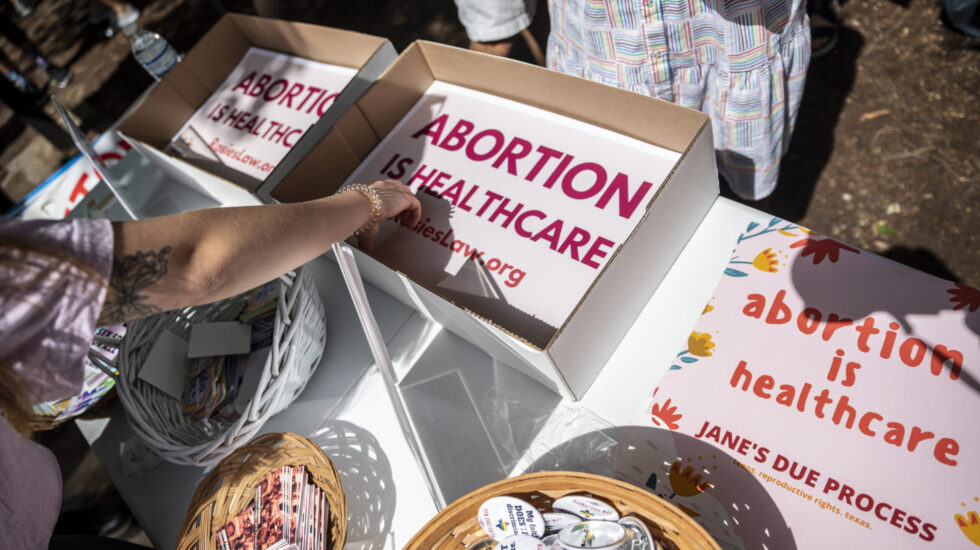A prohibition on abortions after the sixth week of pregnancy is officially Texas state law after the Supreme Court did not act on an emergency request to block it.
The law is one of the strictest in the nation – NPR reports that it “effectively [ends] Roe v. Wade protections in the state.” Many women don’t know they’re pregnant at the six-week mark and the new ban does not contain exemptions for rape or incest.
Senate Bill 8 was passed in May with an effective date of September 1st. Abortion providers filed an emergency application with the Supreme Court, writing that the law “would immediately and catastrophically reduce abortion access in Texas, barring care for at least 85 percent of Texas abortion patients (those who are six weeks pregnant or greater) and likely forcing many abortion clinics ultimately to close.”
The New York Times explains that the emergency application has merit, noting “Supreme Court precedents forbid states from banning abortion before fetal viability, the point at which fetuses can sustain life outside the womb, or about 22 to 24 weeks.”
But Senate Bill 8 was crafted in a novel way that was designed to work around previous Supreme Court rulings. The Wall Street Journal explains:
Abortion-rights advocates typically challenge new restrictions before they go into effect by suing the government officials who would be in charge of enforcing the law. But Texas lawmakers devised a measure that shifts enforcement from the state to private parties. Under the terms of the six-week ban, private parties can file civil lawsuits against any person who allegedly performs or aids a banned abortion, or who intends to do so. Under the law, a successful suit entitles the plaintiff to collect at least $10,000 in damages per abortion challenged.
Josh Blackman, a constitutional law professor at South Texas College of Law Houston, explained the implications to The Texas Tribune: “Planned Parenthood can’t go to court and sue Attorney General [Ken] Paxton like they usually would because he has no role in enforcing the statute. They have to basically sit and wait to be sued.”
“What ultimately happens to this law remains to be seen,” University of Texas Law School professor Steve Vladeck told CNN, “but now through their inaction the justices have let the tightest abortion restriction since Roe v. Wade be enforced for at least some period of time.”
“Though the Texas law is in effect for now, separate state-court litigation could reduce some of its immediate impact,” adds The Journal.
The Supreme Court is set to re-visit Roe v. Wade in its next term, which starts in October. The justices will consider a Mississippi law than bans abortions after 15 weeks. Anti-abortion advocates believe the Court’s rightward shift will help overturn longstanding precedent.
Meanwhile, abortion providers in Texas stayed open late on Tuesday night before the ban went into effect. CNN explains:
Two hours before the ban was set to go into effect, one of the clinics — Whole Woman’s Health — reported that it was providing abortions. “Our waiting rooms are filled with patients,” the clinic tweeted, adding that “anti-abortion protestors are outside, shining lights on the parking …we are under surveillance.” In another tweet, the clinic said, “This is what abortion care looks like. Human Rights warriors.”
